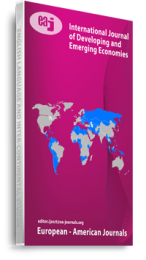This paper provides evidence on the adverse effects of Covid-19 induced capital flight on the bond and foreign exchange markets in Ghana. Based on trend analysis, the study found significant portfolio reversals after the country recorded its first case of Covid-19 on March 12, 2020. This excessive capital flight had a far-reaching adverse impact on nominal exchange rate. Precisely, the Ghanaian Cedi shed earlier gains recorded in the first half of the year against the US Dollar. The prime contribution of this study is that it provides insight into the impact of the Covid-19 pandemic on the bond and foreign exchange markets in Ghana. To the best of our knowledge, this study is novel in the sense that no prior study has examined the response of the domestic bond market and nominal exchange rate to unanticipated global shocks in Ghana. The findings imply that, over-reliance on foreign portfolio inflows renders the bond and foreign exchange market vulnerable to unanticipated external shocks. Thus, the Covid-19 pandemic is a wake-up call for operationalization of policies to strategically develop the domestic bond market in order to build a wider domestic investor base to cushion the Ghanaian economy from such shocks.
Keywords: COVID-19, Foreign Exchange Market, Ghana, bond market, capital fight

